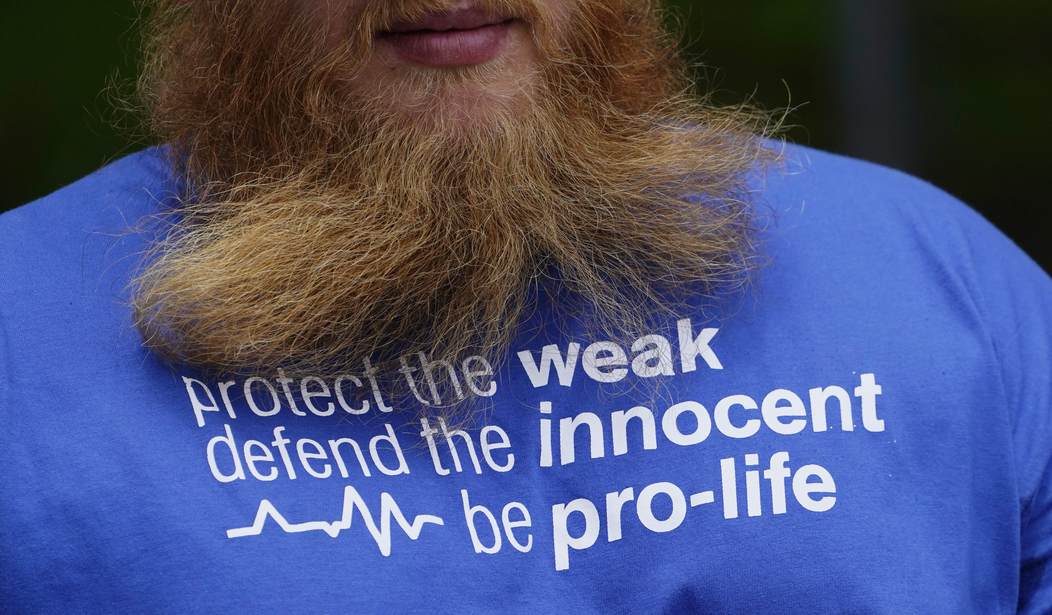Last week, Wisconsin's Attorney General Josh Kaul shared during with the Associated Press that he would not enforce the state's abortion ban should the U.S. Supreme Court overturn Roe v. Wade. Whether or not he intended to, Kaul made the argument for Texas lawmakers as to why they felt the need to add in a citizen enforcement provision to the state abortion law that bans most abortions once a fetal heartbeat is detected, at about six weeks.
Wisconsin is one of nine states that has an abortion ban from 1849 that became unenforceable once Roe legalized abortion on demand in all 50 states in 1973.
The Texas Heartbeat Act, also known as SB 8, has come under heavy criticism, in part because some perceive six weeks to be too early in pregnancy, with many women not knowing they're pregnant yet at this point in pregnancy. Other states have passed such similar laws, though all others were blocked by the courts.
Admittedly, six weeks may seem early to many. Americans can be hesitant to ban abortion in the first trimester. On this particular law, though, it's the opinions of Texas voters that matter most. According to a poll from October, once Texans are more informed about the law, and learn that it's based on a fetal heartbeat, they are in favor of it.
Further, the people of Texas democratically elected their lawmakers who crafted and passed such an abortion ban. It's also worth noting that the law passed along bipartisan lines.
The Texas law has also come under criticism because of its rather unique element when it comes to that citizen enforcement provision. In an official statement posted to the White House website earlier this month, Vice President Kamala Harris claimed that because the U.S. Supreme Court allowed the law to remain effect "cash incentives for vigilantes remain."
On September 29, four weeks after the Texas law had first taken effect, Secular Pro-Life Perspectives published a particularly guest blogger post by Daniel Gump, which served as an FAQ. One question helpfully addressed this provision.
Recommended
It in part reads:
8. Can anyone claim “bounty” after an abortion is performed?
What makes the Texas Heartbeat Act unique among fetal heartbeat legislation is that it declares any non-government individual to have standing to sue. The claims of open bounty on abortion clinics are exaggerated, as generally only those close enough to the acts would have enough evidence to merit lawsuits. Presumably, those close enough would include the women who had the abortions, the father of the unborn children, any relatives or guardians of either, and possibly those within their inner circles.
If a state's attorney general isn't going to enforce the laws on the books, though, as Kaul admitted, who else is supposed to? It's shameful that a state attorney general cannot be expected to do what he or she was literally elected to do, and that he or she would flaunt it. The abortion issue makes abortion advocates act in curious ways, though.
The author of the bill, State Sen. Bryan Hughes, a Republican who is also an attorney, anticipated such a reaction from critics. Fortunately, he was given a platform to explain his reasonings for crafting the bill as he did, in an opinion column published in The Wall Street Journal, titled "The Texas Abortion Law Is Unconventional Because It Had to Be."
This is a particularly illuminating piece that is worth reading in its entirety, especially for those who are open to hearing arguments in favor of this provision. Here is where there are some particularly relevant excerpts though when it comes to enforcement:
One of the numerous unfortunate consequences of Roe is that many people mistakenly believe any regulation on abortion must be illegitimate. This is not so. The Supreme Court does not have the power to declare subjects off limits to democratically elected legislatures.
Yet prosecutors from across the country—including district attorneys from Dallas, Bexar, Nueces and Fort Bend counties in Texas—have announced their refusal to enforce laws regulating abortion, even before they become law and before they’re litigated. Even if Roe is overturned, they say, they won’t enforce democratically passed abortion laws. If officials sworn to enforce state laws pre-emptively decide they won’t do it, even when the laws are passed and ratified and have not been challenged in the courts, state legislators are obliged to get creative.
He also offered persuasive arguments as to how private citizens may be the ones with standing:
Many crimes have a civil analog. Someone who commits a criminal assault, for instance, may be sued in civil court for assault and battery (recall the civil O.J. Simpson trial). Someone who steals property from another may be pursued for the civil tort of conversion. In almost every case, the person wronged, and therefore the person who brings the claim, is the plaintiff.
In the case of abortion, the wronged party has been extinguished. If we can’t depend on criminal enforcement, even if Roe is overturned, and the party who directly suffered harm cannot bring a claim, what’s left? Someone else must enforce the law.
In contexts other than abortion, citizens often sue to enforce laws that are otherwise difficult for the government to enforce through traditional channels. “Qui tam” actions, in which an individual sues on behalf of himself and the people, were enacted in the U.S. as early as the first Congress. Texas law, for example, allows individuals to sue on behalf of the state to recover money taken by Medicaid fraud.
If abortion advocates are worried about citizens--even if they are legally and properly doing so with good intentions--helping to enforce the law, perhaps they might want to send a memo to the attorney generals and other elected officials whose role it is to do the enforcing.
We are a nation of laws made by democratically elected officials, including on abortion. Let's act like it.
























Join the conversation as a VIP Member